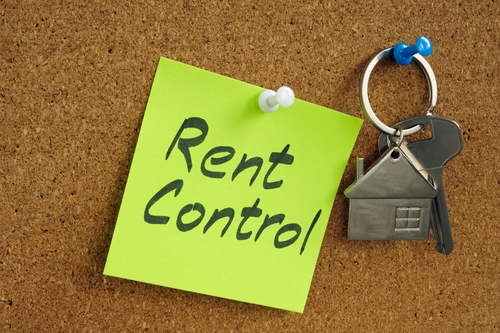Proposals for rent controls made in a government consultation document have been slammed by a prominent industry commentator and PropTech entrepreneur.
The Scottish Government’s latest consultation document for the private rental sector contains proposals for long-term rent controls, allowing pets in rental properties, permitting tenant modifications to a property, greater eviction protection, alternative uses for unclaimed deposits and social rented sector measures/
The document was released to little fanfare last week but now Neil Cobbold - managing director of automated rental payment company PayProp UK - is speaking out.
He says: “This consultation, while addressing some key issues within the Scottish rental sector, is not fit for purpose. It imposes choices on respondents, effectively forcing them to adopt one of the prescribed options, even if they have reservations or alternative ideas to propose. It's a very restrictive approach that doesn't truly reflect the complexity of the issues at hand."
The consultation proposes that rent controls would apply to increases in rent that take place both during a tenancy and where the rent is set for a new tenant. It also states that the government is “considering whether it would be appropriate, in certain circumstances, to allow an increase in rent that is in excess of the rent cap.”
The Scottish Government also acknowledges that “some landlords choose not to increase rents during the course of a tenancy, and instead prefer to increase rents between tenancies”. If rent controls apply both within and between tenancies, the consultation suggests that “landlords may move to increasing rent during tenancies, [which] they would not have done before”.
Cobbold says if landlords are restricted in how much they can raise rents outside tenancies, this could encourage them to automatically apply the biggest rent increase they can during tenancies, raising rents for a greater number of tenants annually.
However, the consultation does suggest the Scottish government is considering a rent control exemption for institutional Build To Rent providers, admitting that “some investors may see rent control as a deterrent to investment”. Cobbold says this will be perceived as unfair, as it could leave private landlords being restricted in how much they can raise rents whilst large-scale corporate property owners would be allowed to increase rents as they see fit.
Further permanent eviction protections are also under consideration, including whether evictions should be delayed during winter, or where it would cause financial hardship to the tenant. However, the consultation also suggests that a tribunal should consider if a delay would “detrimentally affect the landlords’ health or long term disability or cause financial hardship”.
In addition, the consultation is also considering views on several other issues, including whether all remaining assured and short assured tenancies should become open-ended private residential tenancies.
Respondents are also being asked to consider if tenants should be allowed to ‘personalise’ their rented accommodation by painting and decorating the rented property or to keep pets, and what should be done with unclaimed tenancy deposits.
Cobbold says that as letting agents are encouraged to respond to the consultation, those operating in Scotland should first speak with their Member of the Scottish Parliament.
“Ultimately, no matter what the overall response to the consultation is, it will be your MSP that will scrutinise, amend and ultimately vote on these measures. Letting agents can demonstrate their experience and expertise by highlighting to their MSPs the issues that both tenants and landlords will face with the various proposals under consideration.”













%20-%20IMAGE%20Client%20Accounting%20%E2%80%93%20what%20are%20your%20options.jpg)




Join the conversation
Jump to latest comment and add your reply
The SNP have lost the by-election and the plot.
Please login to comment